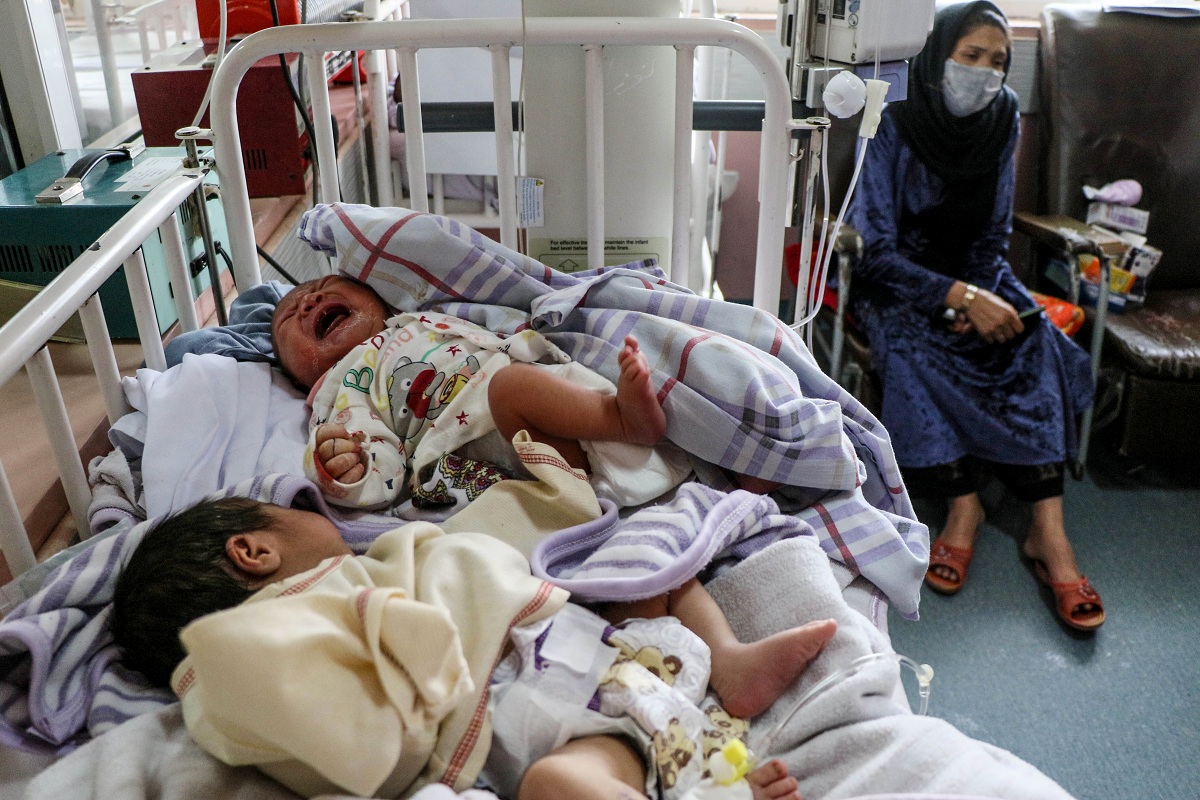Words cannot describe the barbarity of the one of the most shameful terrorist attacks on newborns and mothers in the maternity ward of the Dasht-e-Barchi hospital in the Afghan capital Kabul. Way back in 2014 in Peshawar, Pakistan, terrorists stormed the Army Public School and stamped their atrocious authority by killing more than 130 innocent school children.
The ghastly memories of the Beslan school siege where blood soaked and terrorized children rushing out of the school premises in 2004 in Russia that claimed more than 330 lives is still afresh in the minds. These gruesome acts nowhere entail that terrorists work to savour their religion as they are unabashedly oblivious to the basic ethics of war that exclude attacks on the most vulnerable, that is women and children and at least never on newborns.
With increasing violence and its horridness, the USA-Taliban accord seems to be in shambles. On 29 February 2020, USA entered into a peace agreement with the Taliban to wrap up its combat operations from the Afghanistan battlefield. In 2001-2002, America launched its War on Terror in Afghanistan to oust the Taliban regime for sheltering Osama bin Laden and Al Qaeda terrorists who orchestrated 9/11 terror attacks on its soil.
A concomitant objective of this war was to replace the hard-line Islamist group that had earned worldwide condemnation for debarring women and minorities of their basic rights of education and freedom with a democratic regime in Afghanistan. But the longest running war in human history became one of the deadliest as it surpassed the casualties of even Syria and Yemen. The war has claimed more than 147,000 lives. Having spent $1 trillion in these 18 years, war fatigue has set in.
USA no longer wants to shoulder the role of a hegemon and be the provider of free public goods in terms of stability, security and peace in the South Asian region. In the recent peace accord, Taliban in return has agreed not to use its territory for terrorist attacks against USA and its allies. Conspicuous is the absence of their announcement of a ceasefire amidst the peace talks and the spiking rate of corona cases.
Also, the significant question is who are USA’s allies? Does it include India that has been severely affected by the menace of terrorism for decades now? The chances seem to be dim, as the USA in its haste to exit from the war did not include even the elected Afghanistan government of Abdul Ghani in the peace talks.
Less said about India, the better. Even in the recent meeting organised by the UN Secretariat, six physical neighbours of Afghanistan – China, Pakistan, Iran, Turkmenistan, Uzbekistan and Tajikistan and the dominant players United States and Russia were invited. But India was kept away. Russia, China, Pakistan and Iran who once rejected the legitimacy of Taliban rule in 1996 have now adopted a more realistic posture and have developed closeness with Taliban.
The reasons are not hard to find. Taliban openly and regularly mounts attacks on 66 per cent of Afghan territory adversely affecting more than half of the population. Secondly, Taliban seems to be a potent force against the expanding presence of ISIS in the region. Zalmay Khalilzad, US envoy to Afghanistan has asked India to engage in peace talks with Taliban for a resolution of the long pending conflict.
But India wants Taliban to first recognize the democratically elected government of Abdul Ghani. India has rightly emphasized on an inclusive peace process that is Afghan-led, Afghan-owned and Afghan-controlled. With an authoritarian China and extremism-infested Pakistan and Afghanistan in its neighborhood, India has taken the right and robust step in asserting the most cherished values of democracy, legitimacy and inclusion as the conditions for any peace talks.
India has welcomed the muchawaited amicable power sharing deal between President-elect Abdul Ghani and his political rival Abdullah Abdullah thus ending the first political impasse in this long pending conflict resolution and peace building process. According to the deal, Ghani will remain the President while Abdullah will head future peace talks that also include talks with Taliban.
The latter’s team will also share 50 per cent of seats in the cabinet. India is at a critical juncture facing twin challenges, both at the external and internal fronts of security. Rising terrorist attacks in Kashmir and increasing presence of ISIS in the South Asian region call for strengthening of our borders and national security.
And escalating rate of coronavirus cases call for fastening of human security at the national level and playing a larger pivotal role at the global level to tackle the spread of the virus. Going ahead, India needs to sustain its fine balance between idealism and realism so that it is able to savour its significant investments in Afghanistan in terms of roads, infrastructure, dams, schools, hospitals, building of Afghan parliament and also play a larger role in maintaining peace, stability, security and democracy in the South Asian region.
(The writer is Assistant Professor, Department of Political Science, Maitreyi College, University of Delhi)











